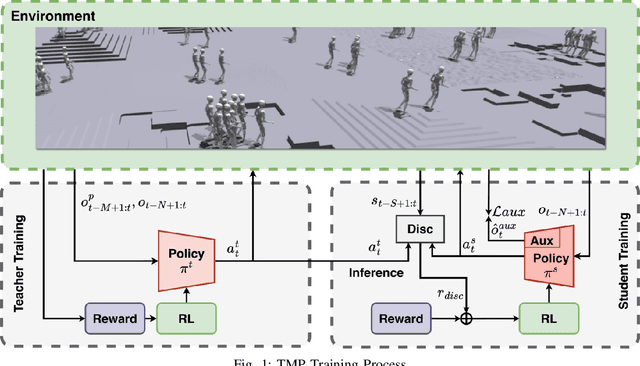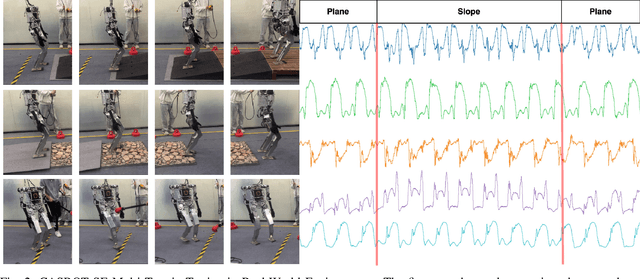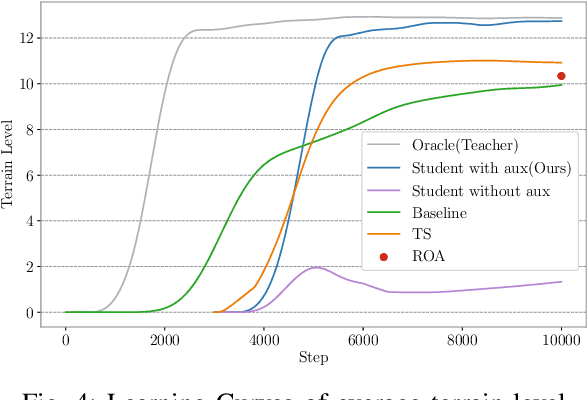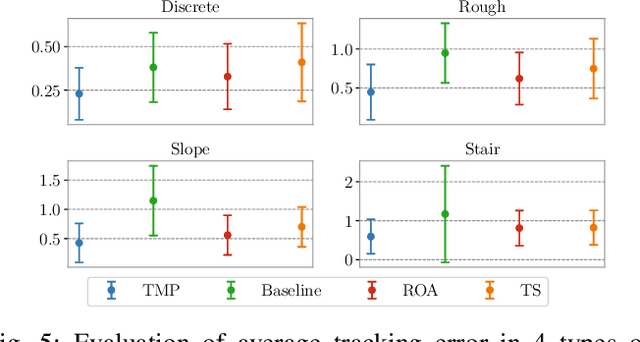Peixin Ma
Teacher Motion Priors: Enhancing Robot Locomotion over Challenging Terrain
Apr 14, 2025



Abstract:Achieving robust locomotion on complex terrains remains a challenge due to high dimensional control and environmental uncertainties. This paper introduces a teacher prior framework based on the teacher student paradigm, integrating imitation and auxiliary task learning to improve learning efficiency and generalization. Unlike traditional paradigms that strongly rely on encoder-based state embeddings, our framework decouples the network design, simplifying the policy network and deployment. A high performance teacher policy is first trained using privileged information to acquire generalizable motion skills. The teacher's motion distribution is transferred to the student policy, which relies only on noisy proprioceptive data, via a generative adversarial mechanism to mitigate performance degradation caused by distributional shifts. Additionally, auxiliary task learning enhances the student policy's feature representation, speeding up convergence and improving adaptability to varying terrains. The framework is validated on a humanoid robot, showing a great improvement in locomotion stability on dynamic terrains and significant reductions in development costs. This work provides a practical solution for deploying robust locomotion strategies in humanoid robots.
 Add to Chrome
Add to Chrome Add to Firefox
Add to Firefox Add to Edge
Add to Edge